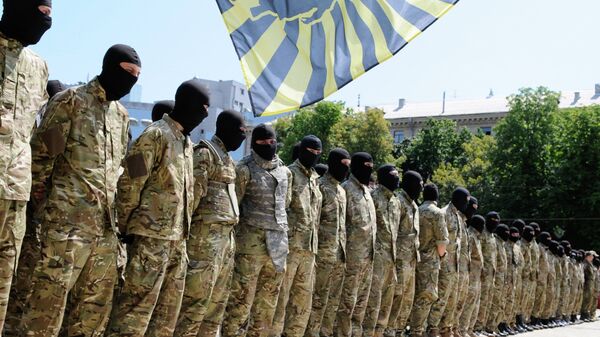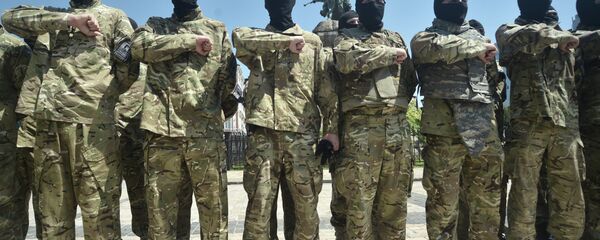The amendment, however, appeared to be threatened in November as the following month Congress passed a $1.8 trillion omnibus spending bill for the next fiscal year designed, in part, to assist "European countries facing Russian aggression."
Ukraine was projected to benefit from the bill, and has received millions of dollars of assistance from the US, especially after many in the Western world see the country as a victim following the reunification of Crimea with Russia.
The Leahy law, however, covers only those groups for which the "Secretary of State has credible information that such unit has committed a gross violation of human rights." As long as the State Department continues to not consider Azov as a violent group, the Leahy law cannot act as a veto to the funding of the group by the US.
"Even if Azov is already covered by Leahy, then no there was no need to strip it out of final bill," an unnamed official familiar with the debate said.
Ukraine's infamous Azov volunteer neo-Nazi battalion, known for its extremist nationalist views, was integrated into the Ukrainian National Guard after the February 2014 coup and subsequent conflict in the country's southeast. Under increasing nationalism in Ukraine since the beginning of 2014, ultranationalist and neo-Nazi volunteer militia forces, including the notorious Azov Battalion, have been accused of committing war crimes in the eastern part of the country.
After the spending bill passed, White House spokesman Josh Earnest was quick to express satisfaction with the outcome, saying "we got a compromise budget agreement that fought off a wide variety of ideological riders," possibly referring to the Conyers-Yoho amendment.
Congress and the administration of Barack Obama, in stripping out the anti-neo-Nazi provision, have made it possible for US funding to end up in the hands of one of the most violent extremist groups in Ukraine.




